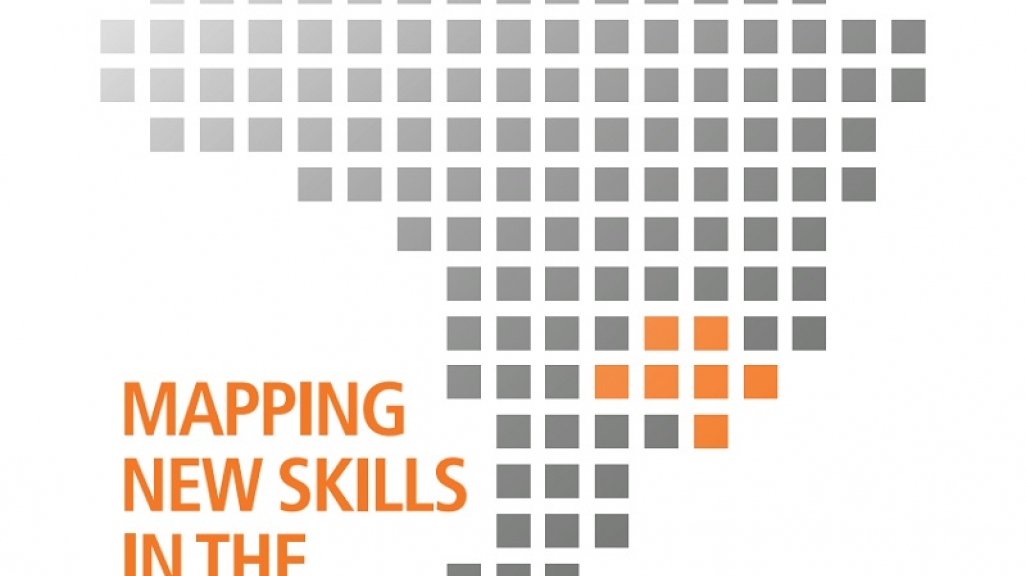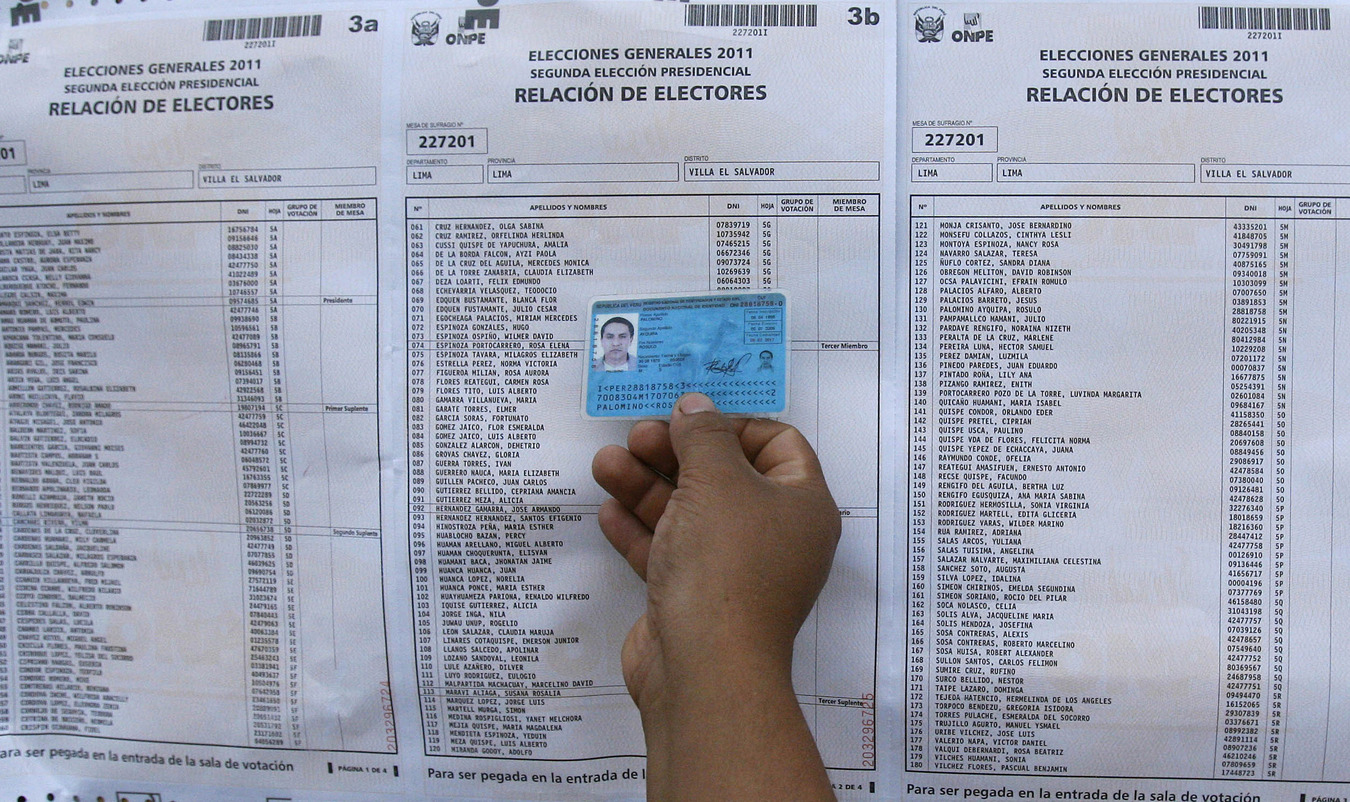Education experts and private sector leaders address the workforce readiness gap in São Paulo state
Education experts and private sector leaders address the workforce readiness gap in São Paulo state
Key findings of the new report Mapping New Skills in the State of São Paulo were released at the COA, JPMorgan Chase Foundation, and Fundação Getulio Vargas/Clear May 11 seminar.
Experts at the New Skills at Work forum, coorganized by the Council of the Americas, JPMorgan Chase Foundation, and Fundação Getulio Vargas/Clear, discussed the main findings of a study that maps the skills gap in the health, food industry, and information technology services in Brazil’s wealthiest state.
São Paulo, May 11, 2017—Business leaders, human resources professionals, and education experts gathered in São Paulo on May 11 to discuss the mismatch between required and existing work skills in Brazil’s biggest state at the New Skills at Work: Skills Development Driving Economic Growth seminar organized by the Council of the Americas, the JPMorgan Chase Foundation, and Fundação Getulio Vargas/Clear. The seminar released key findings of a report—Mapping New Skills in the State of São Paulo—that measured the skills gap in Brazil’s wealthiest state with a focus on three high-growth sectors: health, the food industry, and information technology services. The development of skills through technical and vocational education can potentially lead not only to productivity gains and economic growth but also to real gains in wages. However, for this to happen, there must be a match between the skills needed by employers and those taught in skills-training institutions.
“We are thrilled to coorganize the launch event of the research’s key findings. This report will, hopefully, be the first step towards making policy changes that will bring technical schools and private sector employers closer together,” said Americas Society/Council of the Americas Vice President of Public Policy Programs and Corporate Relations Ragnhild Melzi. “The skills gap hurts not only the population of Brazil, but the private sector as well.”
Developed by Fundação Getulio Vargas and Centers for Learning on Evaluation and Results (Clear), with support of the JPMorgan Chase Foundation, Mapping New Skills in the State of São Paulo draws from quantitative and qualitative data from a sample of over 400 companies to map the supply of technical education in São Paulo and identify potential mismatches between skills demanded by the private sector and those taught in schools. The study aims to help key stakeholders—private sector employers, technical training organizations, and the government—address the skills gap and fill available jobs to stimulate economic growth.
“Possessing the right skills is fundamental to people’s ability to compete for quality jobs and create stable economic futures,” said J.P. Morgan Brasil CEO José Berenguer. “As Brazil pursues new education strategies to ensure that its workforce is prepared to fill jobs in growing industries, it’s vital that we ensure a connection between the skills employers need and those educators are providing. Fostering collaboration between the private sector and skills-training providers will help create a pathway to well-paying jobs and opportunity for Brazil’s workers.”
Mapping New Skills in the State of São Paulo is part of JPMorgan Chase Foundation’s global initiative New Skills At Work, which aims to promote economic growth by improving workforce readiness and demand-driven training. The study will be released in full in late 2017.
“The 'marriage' between job productivity and workforce qualification affects the performance of the economy. Studies such as this one help in the discussion about which policies and decision-making are necessary to increase economic productivity on the long term,” said André Portela, a professor at the Fundação Getulio Vargas School of Economics.
Panelists participating in the discussion in São Paulo also referred to the Brazilian economy’s low productivity. Brazil’s Institute of Education and Research (Insper) President Marcos Lisboa listed the complexity of the Brazilian labor market, institutional inefficiency, and protectionism as factors contributing to the low productivity. Around 80 percent of the creation and destruction of jobs in the service sector, for example, come from the opening and closing of companies, he said. “The rules of the game in Brazil not only allow but also stimulate the survival of small, inefficient businesses. That makes the country poorer.”
While panelists addressed the need for companies to actively participate in training the workforce they hire, private sector representatives spoke of the low quality of technical courses and the lack of general skills that are useful to anyone entering the job market.
Brazil's Vice Minister of Education Maria Helena Guimarães de Castro spoke of the current changes in the country’s curriculum for basic education that are trying to address these difficulties, and of the challenges for the federal government to negotiate reforms with states and municipalities. “We are reducing time on general education stipulated in the legislation and making it possible for students to focus more on only one area of studies,” she said. The goal is having students finishing high school with an additional certification on a technical skill.
Mapping New Skills in the State of São Paulo
Key Findings
- 40 percent of the companies surveyed face challenges to fill existing positions due to a lack of appropriate skills in the workforce.
- 35 percent of surveyed companies depend on external suppliers to train their workforce. Among those, 33 percent said they faced challenges finding suitable training courses.
- Larger companies are more likely to require and hire technical level employees.
- The food industry has the greatest potential to absorb less-educated individuals going through short-term training, as the sector generally demands workers with lower educational attainment.
- The share of students in Brazil undergoing vocational training is rising, and reached 8.7 percent in 2015. But that figure is much lower than that of comparable Latin American developing countries such as Colombia (28 percent) and Mexico (38 percent). The difference is even starker when compared to developed countries such as Austria (71 percent), Italy (56 percent), and Switzerland (62 percent).
- Socio-emotional skills such as perseverance, responsibility, and cooperation are as important as cognitive skills in predicting individuals’ performance in the labor market.
Download the report’s Executive Summary.
Press contact:
COA Media Relations| mediarelations@as-coa.org | 1-212-277-8384.
Council of the Americas (COA) is the premier international business organization whose members share a common commitment to economic and social development, open markets, the rule of law, and democracy throughout the Western Hemisphere. The Council's membership consists of leading international companies representing a broad spectrum of sectors, including banking and finance, consulting services, consumer products, energy and mining, manufacturing, media, technology, and transportation.
The JPMorgan Chase Foundation, the philanthropic arm of J.P. Morgan, partners with nonprofit organizations to support individuals and communities through projects focused on workforce readiness, small business development, and financial capability. Through such activities the Foundation aims to enable true social mobility opportunities in the communities in which it is present.
Fundação Getulio Vargas (FGV), founded in 1944, is a world-renowned center for quality education dedicated to promoting Brazil's economic and social development. With eight schools, two research institutes, technical assistance projects, and a publishing unit, FGV is ranked as one of the top think tanks and higher education institutions in the world.









